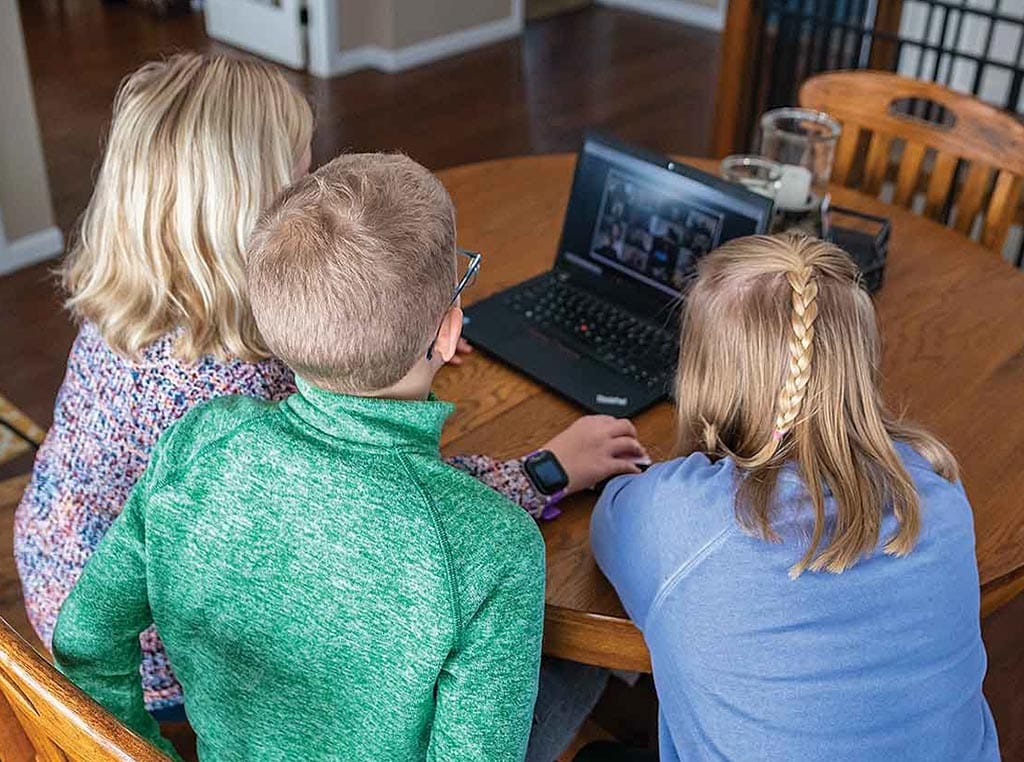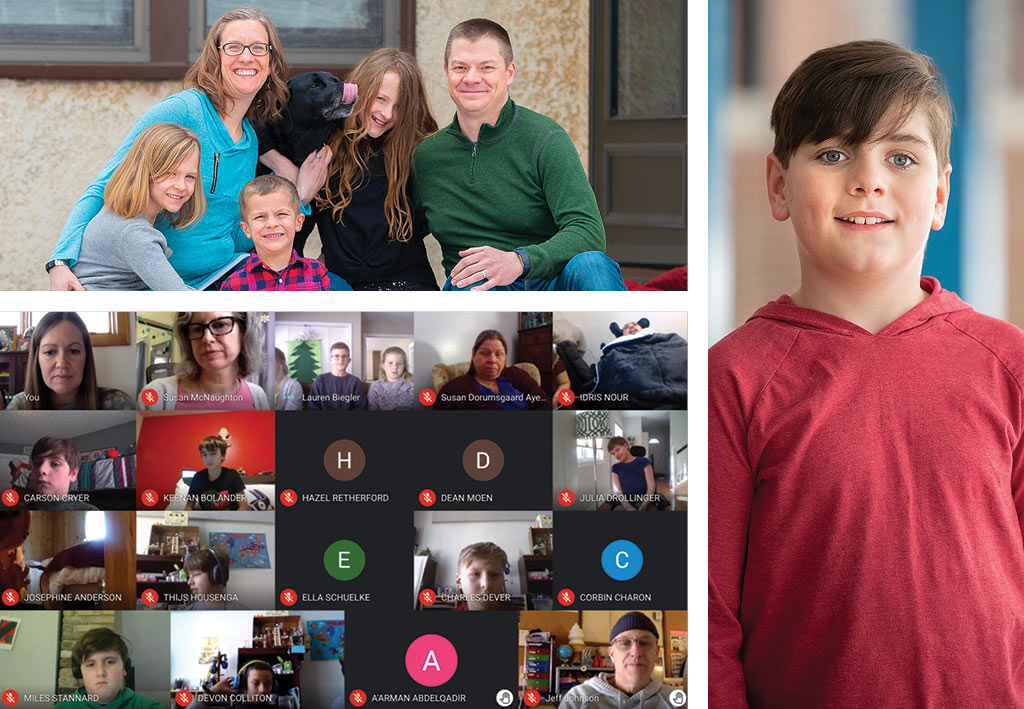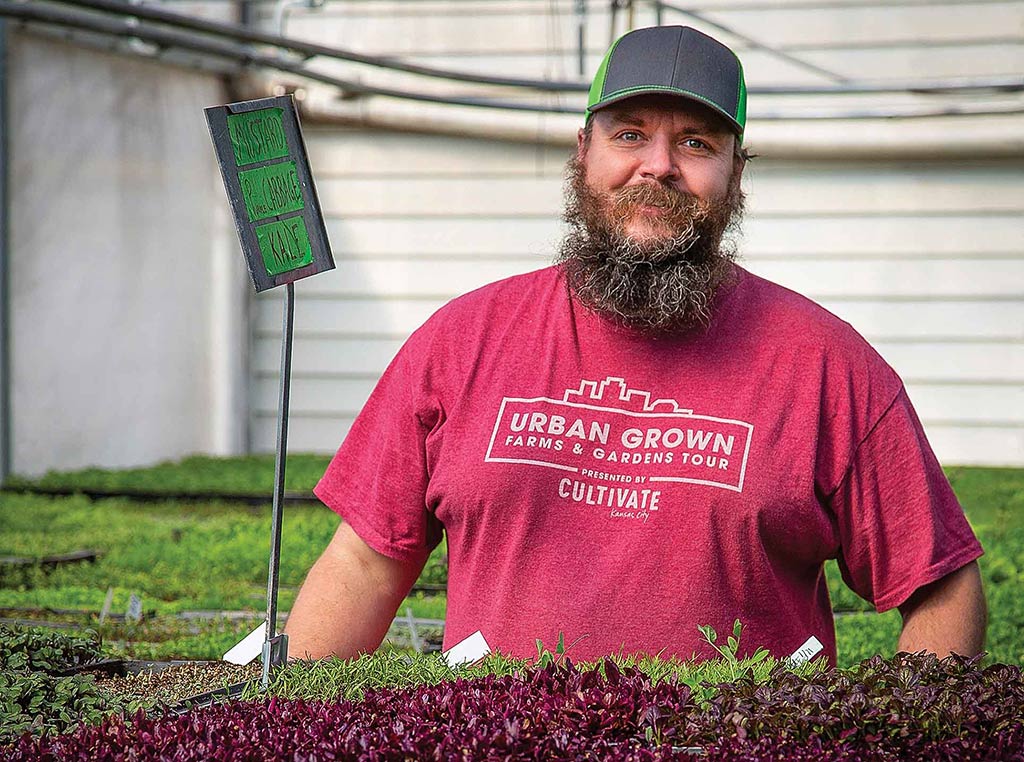
Aubrey, Alaina, and Wesley Biegler get online from their farm house’s kitchen table.
Agriculture, Education June 01, 2021
An Open Book
Farm kids answer what city kids really want to know about the farm.
Fifth graders at Dowling Elementary School—an urban environmental magnet school in Minneapolis—did a unit about corn last fall. They learned a little about the parts of the plant, what corn is used for, scientific and technological advances that help produce better corn, and Paul Bunyan’s popcorn blizzard.
I know this because their teacher, Ms. McNaughton, is my neighbor. And she excitedly told me about her students’ reports one day when a stray ear of corn rolled out of my car into our shared alley.
That chance interaction got me thinking: how could I help her students put their textbook material into context?
So, I connected them with a Minnesota farm family who also has a fifth grader.
A simple conversation. “It’s amazing how it happens every single time. Barriers that lead to misconception and fear are alleviated immediately when you find out how similar you are,” said Lauren Biegler, corn and soybean farmer from Lake Wilson, Minn.
She and her children—Alaina (sixth grade), Aubrey (fifth grade), and Wesley (third grade)—met Ms. McNaughton’s class online and talked about the similarities and differences between life on the farm and in the city.
The hour-long conversation went a little like this:
“How big is your yard?”
“How many acres do you farm?”
“Do you have livestock?”
“How do you get to school?”
“Do you have to ask your neighbors if you can have animals outside?”
“How long does it take to harvest?”
“How do you get paid?”
“What is an elevator?”
Big reactions. After the meeting, the students reflected on the opportunity to meet each other. Dowling student Carson Cryer said, “I was surprised how much corn they really do grow. I see it from a different perspective…the farmland is a lot more work than it sounds like.”
Student Dean Moen added, “I thought farms were boring but not anymore.”
The farm kids were equally as surprised with what they learned during the conversation.
They said simply, “One thing we thought was interesting was that it was interesting.”
They were surprised how small city yards are and that the kids didn’t have many outside animals. But perhaps the biggest surprise from the conversation for the farm family was what they did not discuss.
“A lot of people talk about what we put on our fields to help them grow. I thought it was weird they didn’t ask anything about chemicals or tilling,” Aubrey said.
Agreeing, Lauren commented, “I was surprised, too. I kept waiting for them to bring it up, but you know, just the minute you make a connection—like this time over the similarities of being in fifth grade—those other things don’t matter as much.”
Just the start. The final question during their virtual meeting was: “When will we meet again?”
All it took was connecting over their dogs and getting a peek out each other’s windows through the computer screen for the kids to want to meet again and learn more from each other.
They immediately started planning how to connect throughout the growing season.

Clockwise from top Hazel Retherford poses with her family and dog outside their Minneapolis home. Carson Cryer stands in front of his school, Dowling Elementary School. The Bieglers met Dowling students and teachers online to talk about farm life.
Read More

AGRICULTURE, SPECIALTY/NICHE
Aquatic Allies
Oyster farmers help tackle Chesapeake nitrogen.

AGRICULTURE, SPECIALTY/NICHE
Big Bonus From Little Greens
Microgreens provide a nutritional punch and can be fun to grow.
